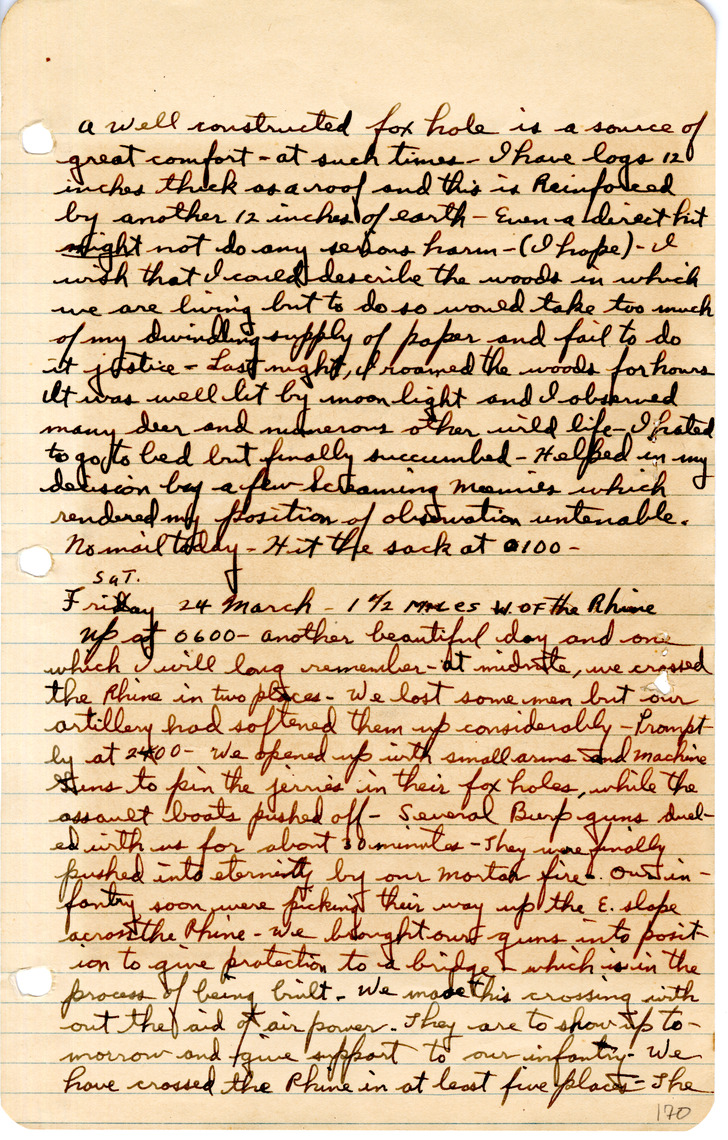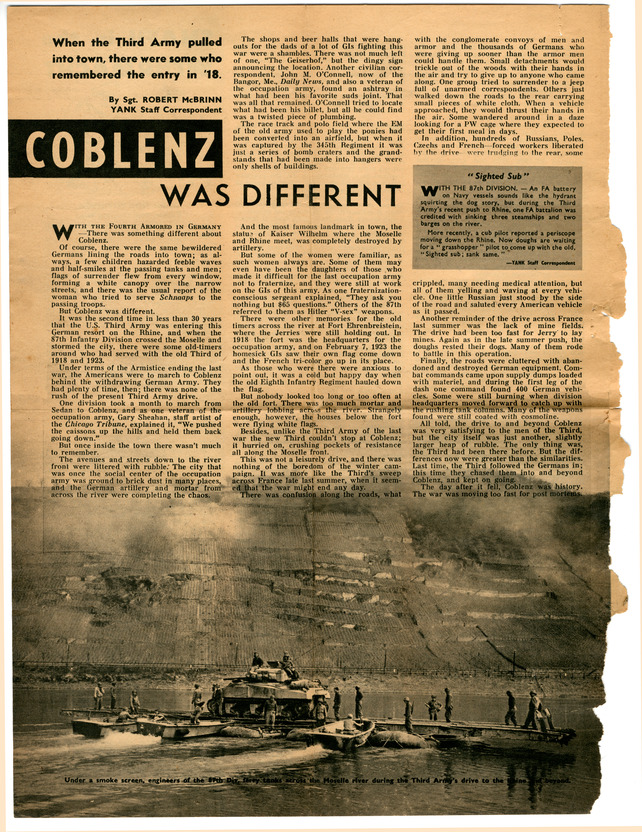[continued from previous page] A well-constructed fox hole is a source of great comfort, at such times. I have logs 12 inches thick as a roof and this is Reinforced by another 12 inches of earth. Even a direct hit might not do any serious harm, (I hope). I wish that I could describe the woods in which we are living but to do so would take too much of my dwindling supply of paper and fail to do it justice. Last night, I roamed the woods for hours. It was well lit by moon light and I observed many deer and numerous other wild life. I hated to go to bed but finally succumbed. Helped in my decision by a few Screaming Meemies which rendered position of observation untenable.1 Screaming Meemies—A very specific type of small Army rocket that is launched from a multiple rocket projector on the back of a vehicle. The name comes from the terrifying noise that the rockets made during launch. Wentworth & Flexner, “Dictionary of American Slang.” Accessed April 15, 2014. No mail today. Hit the sack at 0100.
Saturday, 24 March [1945] 1 ½ miles W. of the Rhine
Up at 0600. Another beautiful day and one which I will long remember. At midnight, we crossed the Rhine in two places. We lost some men but our artillery had softened them up considerably. Promptly at 2400, we opened up with small arms and machine guns to pin the jerries in their fox holes, while the assault boats pushed off. Several Burp guns dueled with us for about 30 minutes. They were finally pushed into eternity by our mortar fire. Our infantry soon were picking their way up the E. slope across the Rhine. We brought our guns into position to give protection to a bridge, which is in the process of being built. We made this crossing without the aid of air power. They are to show up tomorrow and give support to our infantry. We have crossed the Rhine in at least 5 places. The [continued on next page]

